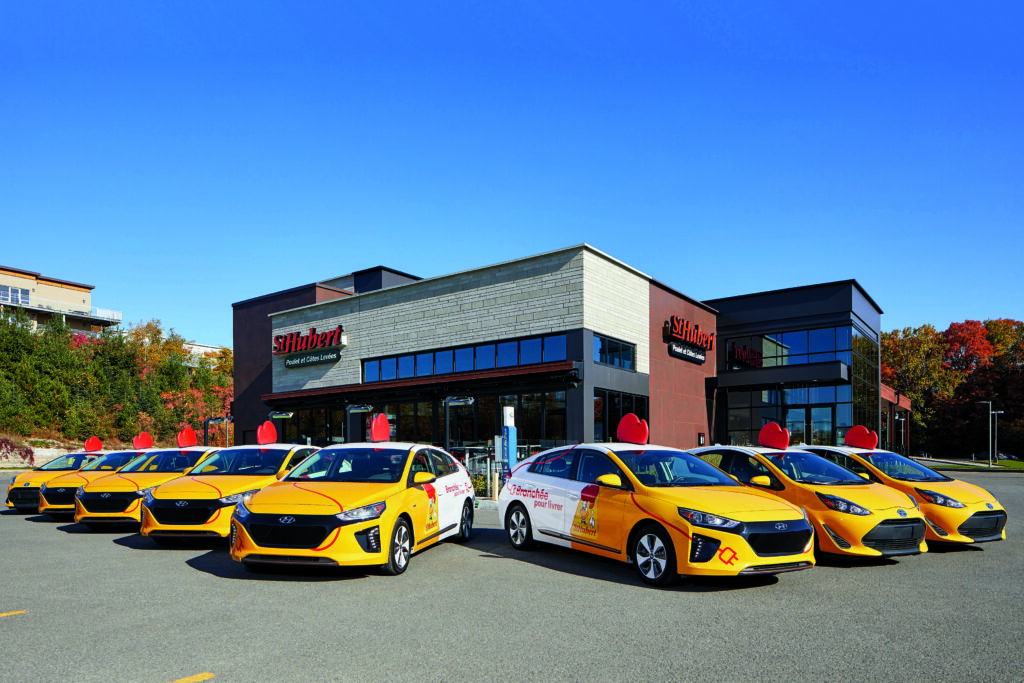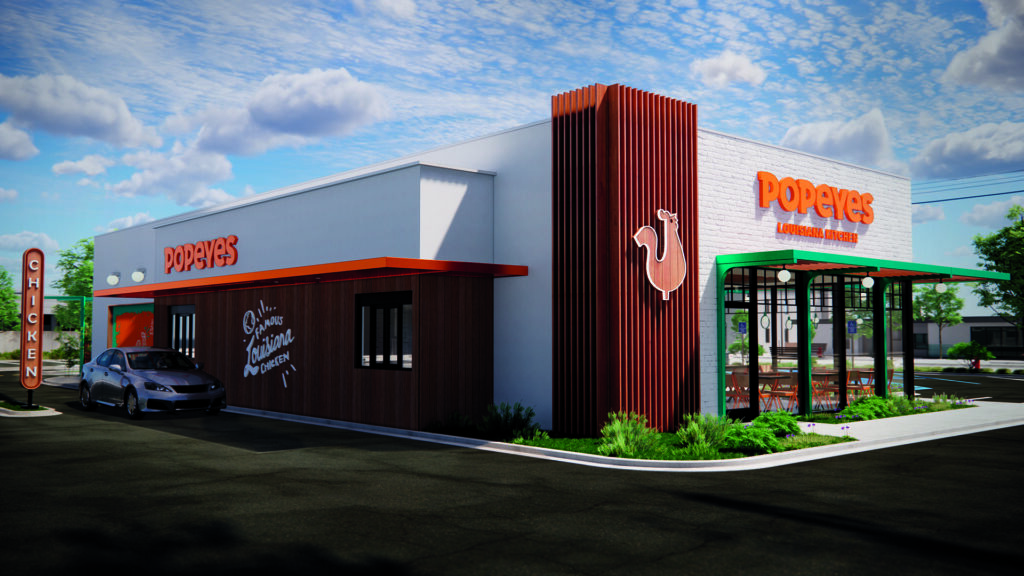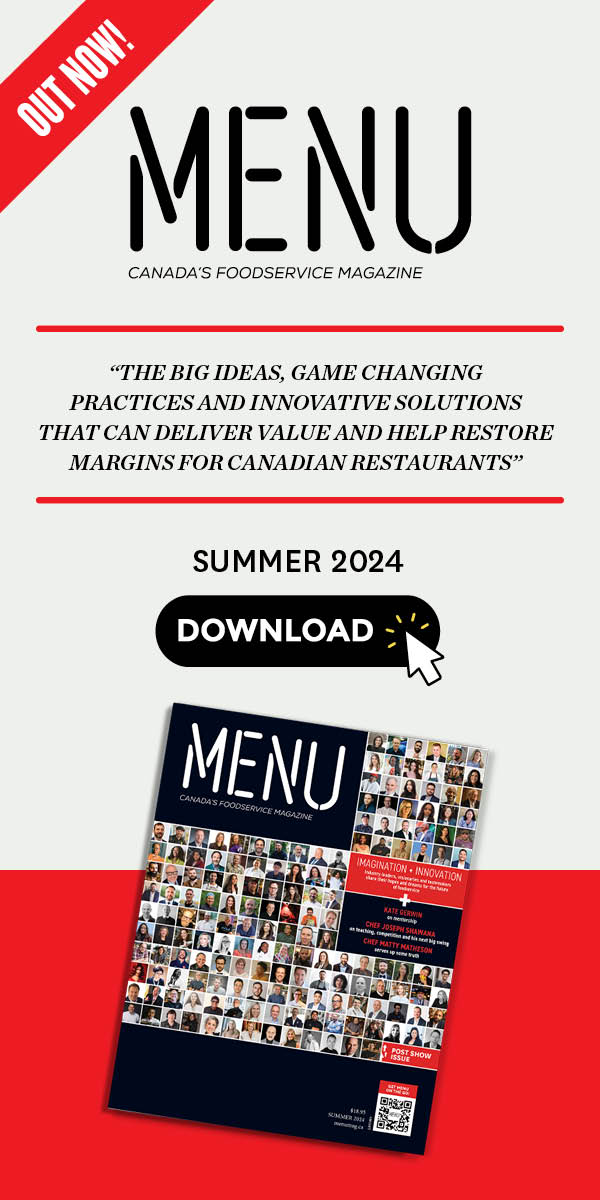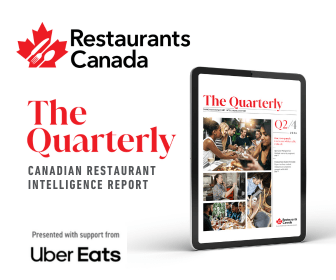Restaurants Leading The Way In Sustainability and Making Impactful Changes
If paper straws are your restaurant’s greatest sustainable achievement to date, then you are behind. Why should you care about sustainability in your daily operations and beyond? Because restaurants in the know understand that putting sustainability at the forefront of their business builds trust with their guests, improves the quality of food they are able to serve and establishes a resilient business model in the long term.
GreenPrint’s Business of Sustainability Index reported that 75 per cent of millennials are willing to pay more for an environmentally sustainable product. Demand for sustainably focused products and services is only expected to grow as customers continue to push for answers regarding where their food comes from, who made it and what the true environmental impacts are.
Here’s how four Canadian restaurants are making big impacts in sustainable foodservice and how these moves have ultimately affected their bottom lines.
Chop Steakhouse & Bar

Chop Steakhouse & Bar, a Canadian, family-owned restaurant chain, began their sustainability journey years ago when they became a member of a community devoted to advancing sustainability within the Canadian beef industry known as the Canadian Roundtable for Sustainable Beef (CRSB). From early on, Chop recognized the importance of sustainable sourcing and was the first full-service restaurant in Canada with a beef sustainability claim on their menu.
Doubling down on their commitment, in June of this year Chop extended their beef sustainability pledge across all beef menu items. Chop has committed to sourcing a minimum of 30 per cent of its beef from CRSB-certified farms and ranches, earning the right to feature the CRSB Certified Mass Balance Mark on all their menus.
So, is it really worth it to invest the additional cost and resources into third-party audits such as the CRSB? “We have a responsibility to earn trust with our customers and our guests across Canada when it comes to beef supply and the way to do that is through this third-party auditing system,” says Marcel Blais, President of Chop. Not only is Chop building a foundation of trust with their guests, they are making strides in sustainable beef with their impact being felt across all 16 locations in Canada.
“To serve sustainable beef meant creating a demand for sustainable beef from producers and further educating the public at large about the importance of all of us participating in whatever way we can for the welfare of the planet,” says Marcel. The conversation around sustainability continues tableside where servers are proud to explain the meaning behind the CRSB Certified Mass Balance Mark and guests can fully appreciate knowing where their food came from.
Recipe Unlimited

As Canada’s largest full-service restaurant company, Recipe Unlimited Corporation recognizes the responsibility they have to operate in a sustainably-minded manner and the impact that their decisions have across their 1,327 restaurants. In August of this year, Recipe published their inaugural Corporate Social Responsibility (CSR) report for 2020, highlighting three key pillars including people, food, and the planet.
Within the report, it states that Recipe has committed $20 million to various sustainability goals over the next few years. So, do you really need a multi-million-dollar budget to make an impactful change? Absolutely not. “Start with one thing—choose something that is meaningful for your business, your guests, and that you and your team feel most passionate about,” says Gina da Costa, Director of Strategic Sourcing at Recipe. “The most important thing is just to get started. Even if only one project is executed at a time, over time those small changes will have a positive impact.” da Costa explained that though this is Recipe’s first CSR report, many sustainability initiatives have been individually tackled over the last several years.
“From a bottom-line perspective, we know that operating sustainably is important for the long-term success of our business and because it is aligned with the expectations of our guests, teammates and investors.” The publication of Recipe’s CSR report is an accomplishment to be celebrated with the understanding that it is a roadmap for continued improvement over the next several years.
To read Recipe’s CSR report, click here.
A&W Canada and Cargill

A&W Canada and Cargill have partnered to create sustainable change through Grazing Forward, an initiative to support Alternative Land Use Services (ALUS) and expand their New Acre Project. ALUS is focused on helping farmers and ranchers implement regenerative agriculture practices including improved soil health, water quality and increased biodiversity.
A&W Canada and Cargill are leading a movement when it comes to sustainable foodservice. “While at times overlooked, agriculture offers a solution to address one of the greatest collective challenges we face—climate change syas Heather Tansey, Cargill Sustainability Director. The way we produce food can be a powerful lever against the impacts of climate change,” The regenerative agriculture practices that A&W Canada and Cargill are investing in not only directly benefit customers and the quality of beef they are able to supply, but also strengthen relationships with suppliers. Tansey confirms: “Participating farmers and ranchers appreciate the hands-on approach from the Grazing Forward initiative, which includes outreach and extension services, technical guidance, implementation and maintenance support.”
Grazing Forward is an example of how restaurants can largely impact sustainability; however, smaller-scale initiatives should not be overlooked. A&W Canada and Cargill, “encourage restaurants and businesses to adapt other practices that have positive environmental impacts, such as partnering with responsible suppliers and operators, buying locally, cooking what’s in season, and reducing food waste.”
Popeyes

This past March, Popeyes announced new quality and sustainability commitments as part of the Restaurant Brands for Good sustainability plan. Over the next ten years, Popeyes will work towards removing artificial colours, flavours, preservatives, and antibiotics important to human medicine from their chicken. In addition to altering their chicken supply chain, Popeyes is also challenging current packaging protocols and upgrading their cups from EPS foam, which is not easily recyclable to paper cups.
“We strive to serve responsibly sourced, high quality and great tasting food every day while continuously reducing our environmental footprint, because we know it matters to our guests,” says a Popeyes spokesperson.
Similar to Recipe Unlimited, Popeyes looks at sustainability through the lens of three pillars: food, planet, and people. The brand recognizes that because these pillars are all interconnected, improvement in one area will ultimately lead to overall success, both environmentally and financially. The company’s position is clear: “Sustainability is about doing the right thing for our guests, for our environment, and for the people and communities that we impact. The long-term health of our business and our planet both depend on it.”
With these four Canadian powerhouses paving the way in sustainable food service, what can we expect to see in the industry moving forward? “Environmental sustainability is not just a trend,” says Anna Pham, Executive Director of Leaders in Environmentally Accountable Foodservice (LEAF). “ As long as we attach a monetary value to the food, customer loyalty will continue to be the main focus. By implementing sustainable practices, businesses will see direct cost benefits and increased brand visibility.” Restaurants like those mentioned here, continue to put their customers at the centre of their business, and in doing so, they have tapped into what their guests care about most.
“Consumers are seeking out sustainable restaurants; therefore, shifting marketing strategies to highlight the overall sustainable efforts wouldn’t impact a business’ budgeted marketing expenses but would help them gain additional market share,” says Pham.
Post pandemic, restaurant operators may not have significant financial capital to invest in sustainability so it’s best to start with the low-hanging fruit. “Reflecting on your own current business practices is free and will provide you with additional information and insight into your business. We then encourage restaurant operators to lean on LEAF for free sustainability resources that are currently listed on our website,” explained Pham. Taking the time to learn about sustainable practices is an investment that will surely pay off down the road.









